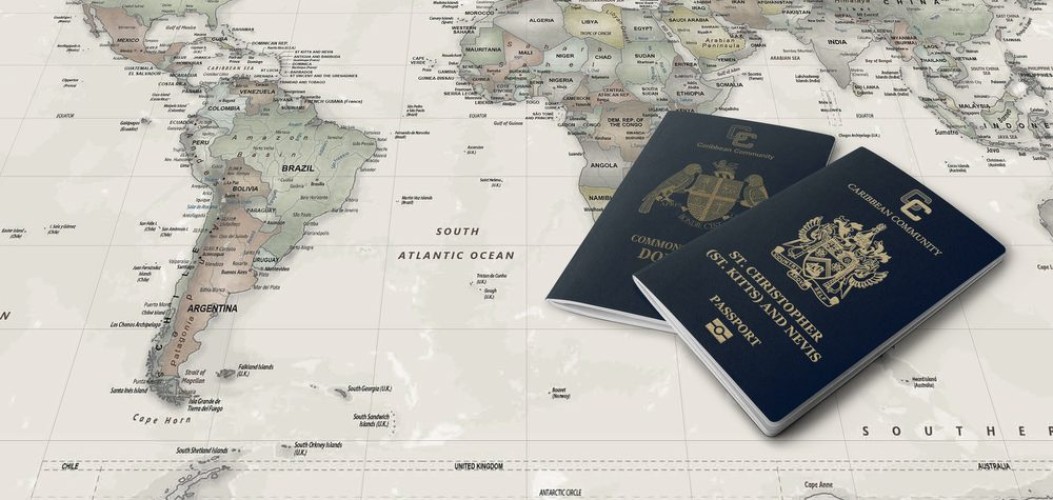Nationality is what gives a person access to all the rights and opportunities available in a state. There are states that allow you to have more than one passport at a time. Other states limit people in the number of nationalities they can hold.
States that allow or restrict multiple citizenships
Among all states stand out those that allow you to have 2 or more nationalities. There are states that impose strict restrictions. It’s essential to understand that different countries have varying laws and policies on the matter. While some states fully recognize and permit their citizens to hold multiple nationalities, others impose restrictions or even prohibit dual citizenship altogether. These regulations can impact legal rights, obligations, and even residency or employment opportunities. Below, we outline the key distinctions between states that allow multiple citizenships and those that impose limitations.
States that permit dual or multiple citizenships
Many states allow their citizens to hold twin nationality or at least recognise it. For example, most European Union states such as Germany, France and Portugal allow twin nationality. However, each of these states has certain conditions and restrictions. For example, in Germany, citizens must renounce their previous nationality in some cases, but this rule can be relaxed for residents of EU states and some others.
Some states, such as Israel and Mexico, allow and even encourage plural nationality for their citizens returning from abroad. Israel actively supports its citizens who reside on other continents and provides nationality opportunities under the Law of Return.
States with strict bans on multiple citizenships
In certain nations, acquiring a second nationality can lead to the automatic loss of citizenship, while others require individuals to renounce their previous nationality before obtaining a new one. Below is a list of countries where dual citizenship is generally not allowed, along with any notable exceptions.
| Country | Policy on Dual Citizenship | Exceptions |
|---|---|---|
| China | Does not recognize dual citizenship; acquiring another nationality results in loss of Chinese citizenship. | None |
| India | Does not allow dual citizenship; acquiring foreign nationality results in loss of Indian citizenship. | Overseas Citizenship of India (OCI) is available, but it is not full citizenship. |
| Indonesia | Prohibits dual citizenship for adults; children must choose one nationality by the age of 18. | None |
| Japan | Requires individuals with dual nationality to choose one by age 22. | Rare exceptions for diplomatic or special cases. |
| Saudi Arabia | Does not allow dual citizenship; acquiring another nationality results in loss of Saudi citizenship. | Can be granted dual citizenship by royal decree in exceptional cases. |
| United Arab Emirates (UAE) | Generally does not recognize dual citizenship. | Exceptions may apply for special cases approved by the government. |
| Malaysia | Prohibits dual citizenship; those acquiring another nationality lose Malaysian citizenship. | None |
| Myanmar | Does not allow dual citizenship under any circumstances. | None |
| Nepal | Does not permit dual citizenship; acquiring foreign nationality results in loss of Nepali citizenship. | None |
| North Korea | Prohibits dual citizenship; citizens must renounce other nationalities. | None |
| South Korea | Generally does not allow dual citizenship but has exceptions. | Allowed in special cases, such as for highly skilled individuals. |
| Vietnam | Does not generally recognize dual citizenship. | Exceptions exist in some cases, such as for overseas Vietnamese. |
Japan is one of the states where plural nationality is strictly prohibited. Under current law, when a Japanese citizen takes the nationality of another state, he or she automatically loses Japanese nationality. This rule also applies to foreign nationals who take Japanese nationality. In case a person is left with two nationalities after coming of age, the Japanese authorities demand him/her to choose.
India also has a strict stance on plural nationality. Under Indian law, if an Indian citizen takes the nationality of another state, he or she loses Indian nationality. This rule is defined in Section 9 of the Indian Nationality Act. Indian authorities do not allow its citizens to be citizens of another state at the same time, but it is possible to legalise residence permits or other statuses in foreign states without losing Indian nationality.
China also does not allow plural nationality. Chinese law states that foreigners who wish to attain Chinese nationality must renounce their previous nationality. This rule applies to both adults and minors. If a Chinese citizen takes the nationality of another state, he or she loses his or her Chinese nationality. Some Arab states, such as Saudi Arabia and Kuwait, also do not allow plural nationality. In these states, attaining foreign nationality in most cases involves the automatic loss of local status. The governments of these states consider that plural nationality may threaten national security and the unity of the population.
Challenges and risks of holding multiple citizenships
While holding plural nationalities offers certain advantages, such as freedom of movement, access to different social protection systems and the possibility to work in several states, it also comes with a number of challenges and risks. A person with plural nationalities may find himself or herself in a situation where his or her rights and obligations conflict. For example, in the event of international tensions between two states, he or she may be called up for military service in both states, creating serious moral and legal dilemmas. In addition, some states may not recognise twin nationality and may consider it as grounds for deportation or withdrawal of nationality.
Legal, tax, and travel implications to consider
In terms of legal implications, having plural nationalities can create difficulties in law enforcement. For example, the laws of different states may demand citizens to fulfil different obligations. If one State demands its citizens to serve in the military while another does not, a citizen with plural passports may be confused when faced with a choice. In addition, some states do not recognise twin nationality and may not only fail to provide legal protection in the event of conflict, but may even revoke nationality. This can be particularly important in the case of litigation, where one state may not grant access to the legal rights and privileges of its citizen if the latter is also a citizen of another state.
From a tax perspective, plural nationalities can lead to confusing and sometimes onerous obligations. Many nations tax their citizens on a global income basis, which means that you may have to pay taxes on income earned outside your state of residence. This creates the need for careful bookkeeping and may demand the advice of tax experts to avoid double taxation. Some states sign double tax treaties, but in a plural nationality situation, having more than one tax resident can complicate situations and sometimes lead to legal conflicts.
As for the impact of plural nationality on travelling, there are also nuances. One of the most obvious advantages is that with plural passports, citizens can easily travel using the document most favourable to them, which can save time and money in visa procedures. Some states have more liberal visa regimes for citizens of certain states, and having a second passport can open additional doors for visa-free entry or simplified visa procedures.
Pathways to acquire additional citizenships
One of the most common methods is naturalisation. This process implies that a person, having lived in the state legally for a certain period of time (usually 5 to 10 years), fulfils a number of demands, such as proficiency in the state language, availability of a source of income, absence of criminal record, etc. After successfully completing all the necessary procedures, including interview and examinations, the applicant can attain a second nationality.
Another common way is investment nationality. Some states offer the opportunity to attain nationality in exchange for large investments in the economy, purchase of property or creation of a business. This method allows to attain a second passport faster, but demands significant financial investment.
Another way is to attain nationality by descent. This may be possible if a person has relatives who have nationality of the state of interest or if he or she was born in that state. Nationality by descent is often easier and quicker than naturalisation, but depends on the specific laws of the state. Finally, some states grant nationality in exchange for special merit or outstanding achievements in various fields, such as science, sports, or culture. This is so-called ‘honourable’ nationality, which is awarded to exceptional individuals.
CBI programs
Each CBI programme has its own unique demands and benefits. For example, some states offer a fairly quick nationality process that can take as little as a few months. In addition, investment thresholds can vary; some states, such as Saint Lucia or Antigua and Barbuda, may demand smaller amounts compared to more expensive programmes such as those in Malta or Cyprus. It is important to note that investors should be aware that not all states allow twin nationality and the implementation of the programme may involve a stringent nationality test, especially financially.
The benefits of attaining nationality through CBI are enormous. Firstly, it opens the door to visa-free or facilitated visa entry to a multitude of states, making travelling much easier. For example, Caribbean nationals can travel visa-free to over 140 states, including the UK and the Schengen area. Secondly, having a second passport can act as an insurance policy in case of political instability or changes in laws in your home state. It can also provide access to better education and health services in other states.
Differences in Golden Visa schemes
A Golden Visa is a scheme that allows foreigners to attain a residence permit or nationality in exchange for investment in the state’s economy. Despite the common name, its conditions and demands can vary greatly from state to state. Here are some of the main differences:
- Amount of investment: The amount of investment required varies from state to state, for example in Portugal it starts at €280,000 and in Cyprus it starts at €2 million.
- Investment options: Some states (Portugal, Malta) allow you to invest in property, while others (Cyprus, Bulgaria) allow you to invest in government bonds or funds.
- Timeframe: The timeframe for attaining nationality/residence permit also varies, from 3-6 months (Malta) to 6-12 months (Cyprus, Portugal).
- Applicant demands: A number of states have additional demands, such as the need to own property of a certain value (Malta) or to have bank deposits (Cyprus).
- Nationality options: Some states (Malta, Cyprus) offer full nationality, others (Portugal) only a residence permit.
Thus, despite the common name, Golden Visas in different states have quite serious differences, and it is important to take this into account when choosing the most suitable option.
Why having multiple citizenships is beneficial
Plural nationality can have a number of significant advantages for an individual. Firstly, it increases opportunities for movement and residence, as the holder of more than one passport can move freely between states and enjoy social benefits and services in each state. Secondly, plural nationality provides additional protection and security, especially when the political or economic situation in one of the states is unstable. If problems arise in one of the states, a person can use the other nationality for protection and support.
Plural nationality allows a person to keep in touch with different cultural traditions, which is important for personal self-determination and enriching life experience. A holder of several passports can feel like a ‘citizen of the world’, which broadens worldview.
Unlocking visa-free access with a second passport
Having dual citizenship can greatly simplify the process of entering states with which your primary state of nationality does not have a visa-free agreement. It allows you to avoid the need to apply for a visa and pass border control more quickly and without unnecessary bureaucratic delays. This option is especially useful for businessmen, tourists or people who travel frequently for work. Having a second passport is convenient in situations when the main passport is being processed or is unavailable for any reason. A second passport allows you to continue travelling and deal with work issues without interruption. In addition, a second passport can be considered an additional security measure. If the primary passport has been lost or stolen, a second passport can be a quick and reliable way to provide identification to return home or continue travelling.
Finding the optimal investment or residency program
When choosing a nationality-by-investment programme, it is important to consider several key factors. It is necessary to assess the financial demands of the programme, namely the amount of investment required. Different states offer different options, from more affordable options demanding investments from $100,000 to more expensive ones, where the minimum amount can be up to $2 million. It is worth analysing what types of investments are accepted: it can be real estate, government bonds, contributions to special funds.
It is necessary to pay attention to the terms of attaining nationality. In some programmes, the process takes only 3-6 months, while in others it may take 1-2 years. This is important to consider if you have an urgent need to attain a second passport. An equally important aspect is the reputation and stability of the programme itself. Some states are better known and more trusted by investors, while other programmes may be less transparent or subject to frequent changes. It is advisable to study reviews, consult experts and assess the prospects for each programme.
In addition, it is necessary to analyse the tax implications and benefits that a particular nationality offers. Some states do not levy taxes on income earned outside the state, which can be advantageous for investors. It is also important to understand the benefits and opportunities that a new passport offers, such as visa-free access to other states.
FAQ
Plural nationality is a status in which a person has the nationality of two or more States at the same time. This means that such a person has rights and obligations in relation to each of these states.
Plural nationality offers a number of advantages. It allows a person to move freely between states, enjoy social guarantees and benefits, access to education and employment in different states. In addition, it gives a person the opportunity to keep in touch with his or her roots and cultural heritage. These benefits are of great importance to many people.
Despite the benefits, plural nationality also poses a number of limitations and challenges. It can complicate the process of attaining government services, processing documents, and paying taxes. In addition, in some states having twin nationality may be considered as disloyalty and may lead to restrictions in rights. There are also difficulties in determining military duty, status of a child and other legal aspects. All of this needs to be taken into account when applying for an additional passport.
Attitudes towards plural nationality vary from state to state. A number of states, including Russia, Canada, Brazil, India, allow their citizens to hold a second nationality. Other states, such as China, Japan, Singapore, do not recognise plural nationality and demand renunciation of previous nationality upon attaining it. There are also states with an intermediate approach where plural nationality is allowed under certain conditions.
There are several main ways of attaining plural nationality. It can be naturalisation in another state while retaining the previous nationality, birth of a child to parents with different nationality, marriage to a citizen of another state, as well as fulfilling special demands for granting plural nationality within the legislation of specific states.






